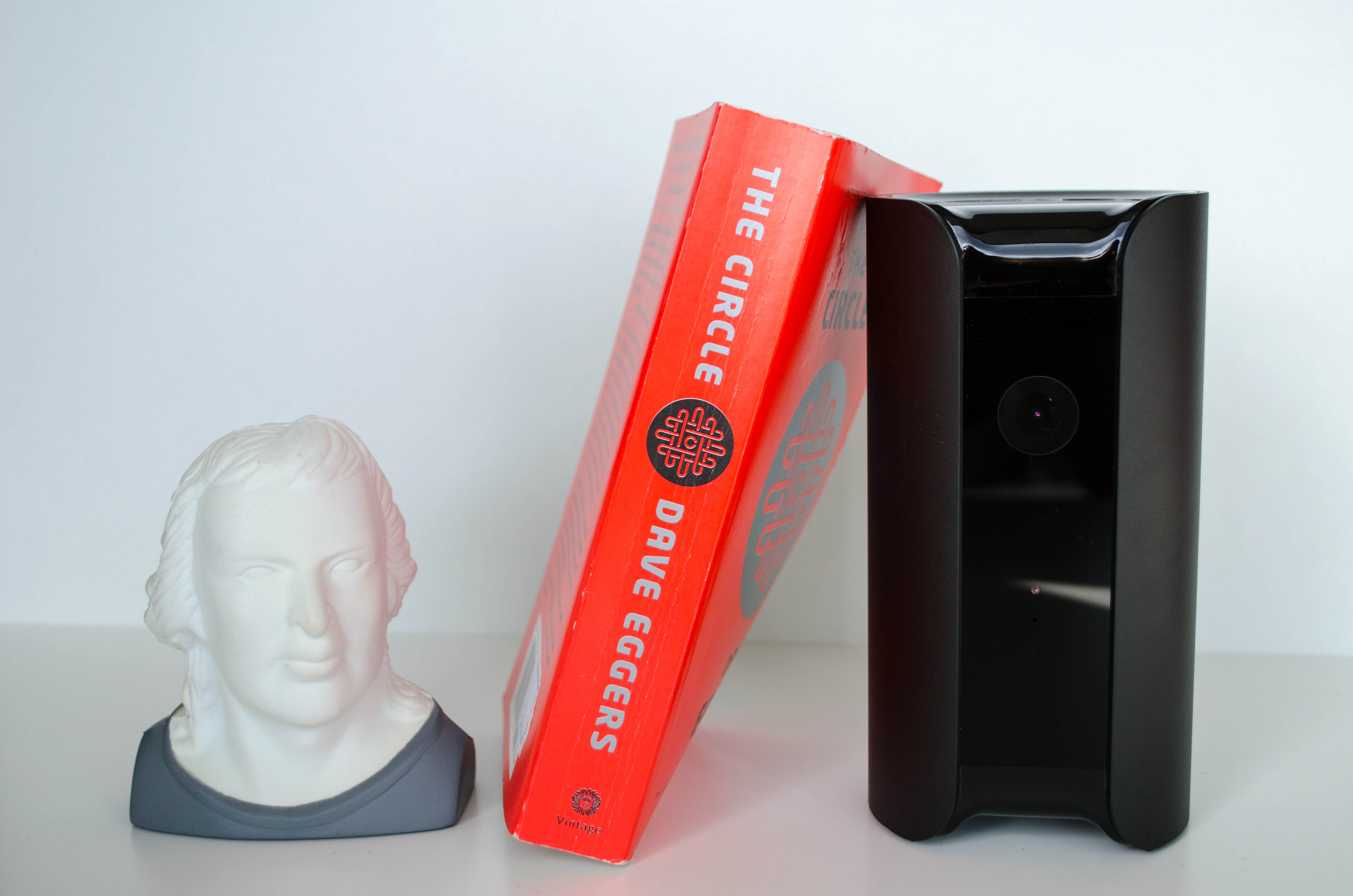Just finished
 The Circle
The Circle by Dave Eggers
As a parable cautioning against the perils of privacy loss in the digital age, The Circle fails miserably. I’m inclined to be generous to Eggers, though, and if you set aside the notion that he has anything prescient or insightful to say about big data, sharing, or online privacy (he doesn’t) this is actually a fun and pretty serviceable throwback thriller, kind of in the style of a lesser Crichton novel. The main character, Mae, is ostensibly meant to be a real-life human being, but she demonstrates such dramatic and unexplainable lapses in judgment and poor critical thinking that I have to assume (I want to assume) that Eggers didn’t intend for Mae to be the warning for what happens when you get complacent and then Facebook is rigging federal elections. She fusses about in such utterly perplexing stupidity and naiveté that she’s less a relatable stand-in for the reader, and more the idiot blonde from a horror movie who runs upstairs instead of calling the police or leaving through the front door. (Mae isn’t actually blonde. Instead, she’s described in Katniss Everdeen-grade racially ambiguous terms: olive skin, black hair. Inclusive!) Maybe I’m butt-hurt because Mae’s supposed to be a Carleton grad and if there’s a single marketable skill that Carleton grads are supposed to be able to claim on our CVs it’s critical thinking. The Circle‘s isn’t a subtle monster that sneaks up on you gradually, lulling you into a calm state of acceptance, vampire-style, so that you don’t realize you’re in danger until you’ve already invited him in and unbuttoned the top button on your blouse. The monster in The Circle announces himself so soon and so loudly that you can only sit back and marvel that Mae has managed to survive this long. She’s stupid, is what I’m trying to say. The men in Mae’s life don’t fare much better, I’m afraid, particularly her many loves. Third for contention is her expendable ex Mercer, a manly but sensitive flannel shirt who literally makes art out of sustainably-harvested deer antlers. Mercer is the voice of reason and reminder of Mae’s better, simpler, past self. Vying for top slot are limp-dick Francis, a nerdy, pitiful schmuck who is mostly described in terms of his orphanhood or how quickly he comes (once before he even gets his pants off), and mysterious, calligraphic (Eggers uses that word to describe him 3 times in 100 pages) Kalden, whose penis is so superior that he actually punches Mae’s cervix with it (which she, of course, loves). If you can forget all the silliness about slowly encroaching corporate ownership of private data, it’s kind of fun to watch Mae flail around and make consistently bad decisions, running straight into the mouth of the beast, oblivious to reality and impervious to the valuable lessons she learned in the common reading convocation during New Student Week at Carleton.
Ik ben Polleke hoor! by Guus Kuijer
The last of the Polleke series was probably my least favorite, sadly. It would be hard to live up to the previous four, especially with the added pressure of concluding the whole series, but this book still felt slightly lacking. On the whole, though, I loved the series and I wish I could keep up with Polleke as she gets older.
Currently reading
Telegraph Avenue by Michael Chabon
I’m not sure what I think about this one yet. Chabon really loves his modifiers, and it can make for a slow, sometimes agonizing, read. The first hundred pages or so jump around a lot in time, place and perspective and I’m just beginning to see how the pieces are fitting together. Were it a different author, I may have abandoned this disconnected narrative by now, with its chapter about what it feels like to be a black woman in Oakland (Chabon is a white dude) and the heightened and uber-stylized dialogue between two record-shop owners (nowhere as cute as High Fidelity). I really think The Amazing Adventures of Kavalier & Clay
was a heartbreaking masterpiece, though, so I’m willing to offer a little bit of advance credit to Chabon and take a leap of faith with him. There are some shining moments that break through and Chabon is certainly capable of building something beautiful out of these disparate, sometimes ugly, pieces.
On the horizon
All the Pretty Horses by Cormac McCarthy
Next month’s book club pick is the first novel in the Border Trilogy. McCarthy is one of my faves and I remember loving this series of books when I read it a few years ago. As a stand-alone novel, I can’t quite remember how well this first in the trilogy compares. My hunch is that this one was a slow build that doesn’t really pay off until Cities of the Plain but I’m looking forward to this re-read nonetheless. This is also a book that I’ve been recommending for years and I already have an idea about which of my book club members will love it; I’m curious to see if my intuition is accurate.